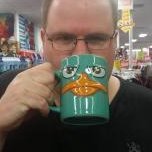Here is what I propose!
Am I crazy?
Public Intellectual Properties of Games (PIPOG)
Definition of Intellectual Properties (IP):
Proper Nouns, as they pertain to the game:
e.g. (Princess Morning, The Leowyn Kingdom, The Ashidians)
Plots, as they pertain to the game:
e.g. ('Princess Morning' was forced to use the 'Manaquifer' from the tainted well to fight off the 'Ashidians')
Trademark usage, the name of the game only:
e.g. (Morning's Wrath)
Symbols and other recognizable symbolic traits:
e.g. (The Morning's Wrath theme music, notation (the sheet music, not the rendering of it), The Leowyn Star (the conceptual shape, not a rendering of it))
Guidelines for producing a derivative work by invoking PIPOG:
1. The game's IP must be stated by the owner of the IP as being valid for PIPOG
(Until if/when this is made the norm, and is required by law)
2. A 'Statute of Limitation' defined by the company at the time of publication of game, must be given, the default being 10 years. This time limitation is based on the time span when the Last usage of the IP took place, in the production of a full scale sequel or continuation. The moment a sequel or continuations released the counter is re-set. However if the counter reaches the set span, then the PIPOG is said to be 'ripe' and becomes part of the public domain with regard to the PIPOG guidelines and cannot be reversed, even by the release of a sequel or continuation.
3. Any derivative work, which is not classified as Fair-Use (Educational/Parody/etc.), and is said to fall under PIPOG must show that the derivative work is meant as a valid sequel or continuation of the IP, and strives to keep with the values of the IP, which can be challenged by the IP holder e.g. (An adult game based on the IP of a children's game)
4. All derivative works must be labeled clearly, as such in, Title, Documentation and Advertising, using language defined by the IP holder, e.g. (Morning's Wrath 2, An UNOFFICAL SEQUEL (or) An UNOFFICAL Continuation), any attempt to mislead players into thinking it is produced by the holder of the IP is Trademark and Company Image dilution and will be treated as such. e.g. (valid: based on the original game by Ethereal Darkness Interactive; invalid: Copyright 2005 Ethereal Darkness Interactive)
5. All materials digital or otherwise (files, etc.) must be 100% the work of the derivative author (no original files or graphics or anything except for 'Ideas' can be used from Morning's Wrath), or in accordance with Public Domain/Freeware/PIPOG licenses.
6. All uses of the IP must be for Non-Profit, and the software must be released as FREEWARE, this includes Merchandise, strategy guides, and other goods and services; the author(s) of the derivative work must receive no payment in exchange, except for Donations, which must be completely optional to the player.
7. The derivative author should do his/her best to comply with the request of the IP owner; the idea is to achieve both the goals of the IP owner and the goals of the derivative author. Likewise the IP owner should realize their IP is potentially loved by many, and by owning it they have a certain responsibility to their fans, one of these is to honor PIPOG to the best of their ability.
8. Any breech of the guidelines of PIPOG gives the IP owner the RIGHT to 'throw the red flag' and request a cease and desist. It is up to the derivative author to try and work out an agreement with the IP owner to allow the derivative work to continue and finally be released. The derivative author MUST comply with the final ruling of the IP owner, but reserves the right to prosecute for the right to use PIPOG stating that they were in compliance with its guidelines. This is the last resort however, if it is clear that the IP owner is genuinely and reasonably unhappy with the derivative work then it is best to let it be.
9. The IP owner is not required to support any derivative works in any way. The derivative work does not necessarily adhere to the End User License Agreement stated for the original game.
10. Finally I cannot stress enough; the purpose of PIPOG is to bring further enjoyment to fans of a certain IP, which might otherwise never happen. So if going on an endeavor of invoking PIPOG on a given IP does not seem to be working out, it is best for all involved to let it be.

